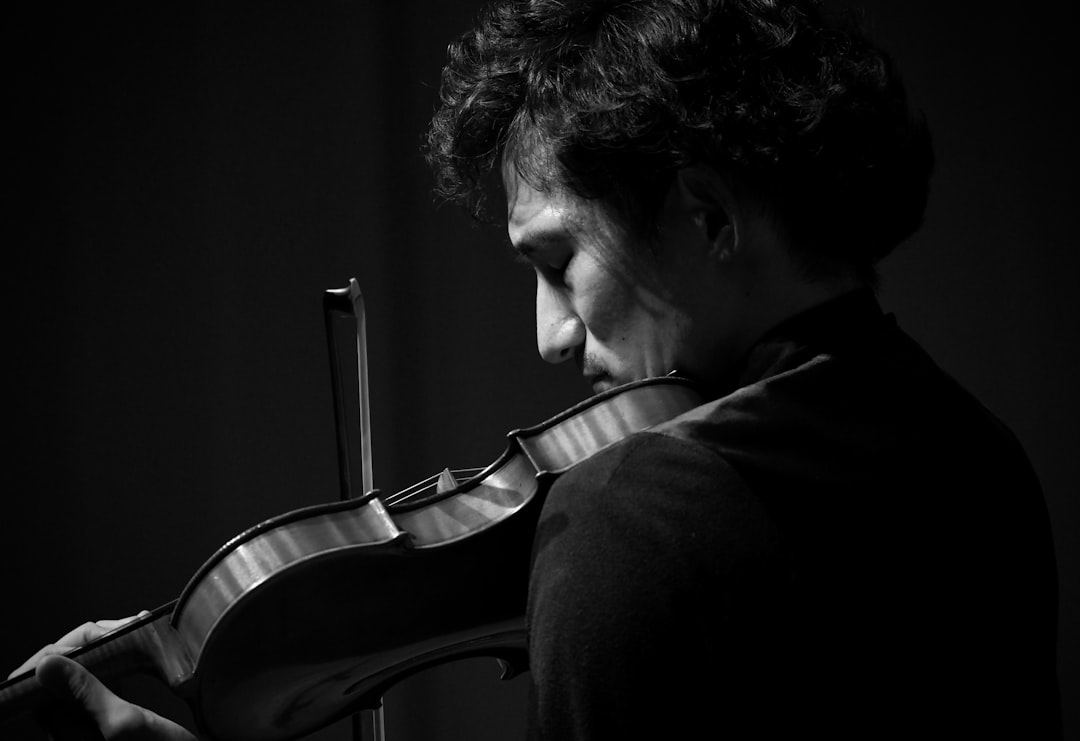Are Violin Lessons Helpful for ADHD?
Is music therapy a viable treatment option for ADHD? That's the question many parents are asking, and it's one that scientists and physicians are beginning to explore. A recent study showed that children who received daily music training had higher levels of dopamine and norepinephrine in their brains—neurotransmitters involved in regulating attention. This suggests that learning an instrument can have benefits beyond simply enjoying music. In this article, we'll take a closer look at what research has found about the relationship between playing music and having ADHD (or not), as well as some ideas for how to get your child started with an instrument if they've been diagnosed with this condition.

The repetitive structure to playing the violin helps people with ADHD
The structure of playing the violin is a good fit for people with ADHD. The lessons are repetitive, predictable, and structured. Students learn one new thing at a time and then practice it over and over again until they master it. This is a good match for the brain of an adult with ADHD because it allows him to focus on something other than his symptoms of inattention, impulsivity, hyperactivity, or all three!

Playing the violin can help strengthen your brain's ability to focus.##
Playing the violin can help strengthen your brain's ability to focus. The brain is a muscle, and like any other muscle, it needs to be trained. This is especially true for people who have ADHD.
The violin is a great instrument for training the brain’s ability to focus. The reason why has to do with how you hold your violin and how much coordination you need while playing it. It's an activity that requires motor skills that are often difficult for people with ADHD (and anyone else).
So if you're looking for a way to improve attention span through music lessons or just want some new skills that will improve your life in general, consider taking up the violin! You'll be surprised at all of the benefits this ancient instrument offers!

Music is highly structured, which can give children with ADHD a sense of order in their lives.
Music can be a great outlet for children with ADHD. It has a structure and is a universal language, which gives them a sense of order in their lives. The focus required for playing an instrument helps them stay on task when they practice, too.
Music also helps children with ADHD express themselves in ways that other activities might not allow them to do as easily—think of all the emotions you feel during music performances! A child with ADHD may benefit from these creative outlets because it keeps them from focusing exclusively on themselves (which can lead to feelings of isolation), allowing them to interact with others in an environment that's less stressful than talking face-to-face or being around crowds or noisy environments.

Children with ADHD can learn self-discipline when they practice the violin.
Many parents of children with ADHD worry that their child will get bored or frustrated by the violin, which is a very structured instrument. But one of the benefits of learning a musical instrument is that it teaches self-discipline. The violin requires focus, attention and discipline; these are all things that are difficult for children with ADHD to stay on top of. Once they've learned the basics, though, they can practice those skills every day by practicing their music!
Practice makes perfect: It's true! The more you practice something new (even if you're not very good at first), the better you'll get over time. If your child practices playing scales or reading music regularly at home then they'll soon see improvements in their ability as well as their enjoyment level when learning new songs to play on their instrument

Learning to play the violin stimulates many parts of the brain at once.
Learning to play the violin is an excellent way to exercise your brain and improve its function. The benefits of learning to play the violin extend far beyond music, as it stimulates many parts of the brain at once:
The motor cortex controls movement by sending signals from there to other areas of the brain. When you practice playing an instrument, these nerves are activated and strengthened, improving their ability to communicate with each other (and thus improving your fine motor skills). This can help people with ADHD who have trouble keeping their hands still or maintaining focus on tasks that require fine motor control—a common symptom among people with this disorder.
Learning music also stimulates activity in both hemispheres of your brain—which means that it's great for improving coordination between them! Activating both sides simultaneously helps keep them working together smoothly and efficiently so they can process information more quickly than usual; people with ADHD often struggle especially hard with this skill when doing things like playing musical instruments or sports because one side tends not work as well as

The benefits of learning the violin can be especially beneficial to children with ADHD because it gives them structure and helps them learn self-discipline.
The benefits of learning the violin can be especially beneficial to children with ADHD because it gives them structure and helps them learn self-discipline.
For example, practicing an instrument like the violin is a lot like learning math: there are rules that need to be followed in order to make music. For example, if you're playing notes on a stringed instrument, you have to press down each string at just the right place or it won't sound right—the same way you have to solve math problems in order for them to work out. The repetitive nature of playing an instrument also helps children with ADHD because it allows them to focus on one task for longer periods of time without getting bored or distracted by other things going on around them. And finally, music itself has been shown as being able to stimulate brain activity in ways that help people with ADHD pay attention better than they might otherwise do—which makes sense when you think about how important rhythm is when learning any sort of physical skill (like walking).

Learning to play the violin isn’t just a fun activity for kids with ADHD. It can be a great way for them to learn self-discipline, improve their focus and strengthen their ability to manage their condition. We hope that this article has given you more information on why learning the violin can be so beneficial for children with ADHD and other conditions like it.For violin lessons in Redmond.
Visit our page!



